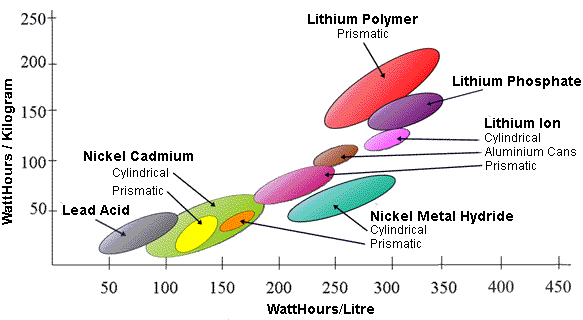carolle
Active member
(1) What is the weight of lithium-ion battery pack? Or, what would be the weight of the batter per kWh?
I've heard that Tesla's big capacity battery (60~85kWh) takes so much weight, which enforced other materials such as doors to be lighter materials.
Given that 1 gallon of gas gives 20-30 miles for a conventional car, it means that 6 lb of energy gives 20-30 miles. Of course, when considering the weights of all necessary parts for internal combustion, the required weight should be higher. But, I'm wondering whether current technology has limitations on the weight of the battery.
(2) I love LEAF very much. But, I was surprised that there was no visible improvement of the cabin space, which can be easily seen in Tesla Model S. Okay, LEAF is much cheaper than Model S, so it's not fair to compare
But, the protruding part in the middle of rear seats is hard to understand. Also, there are many bulky structure in the front center cabin area, where the shift is placed.
The reason actually can be understood by the chassis:
http://www.mynissanleaf.com/viewtopic.php?f=15&t=18" onclick="window.open(this.href);return false;
Is there a fundamental challenge to make the battery pack flat for larger cabin space, just like Model S?
I've heard that Tesla's big capacity battery (60~85kWh) takes so much weight, which enforced other materials such as doors to be lighter materials.
Given that 1 gallon of gas gives 20-30 miles for a conventional car, it means that 6 lb of energy gives 20-30 miles. Of course, when considering the weights of all necessary parts for internal combustion, the required weight should be higher. But, I'm wondering whether current technology has limitations on the weight of the battery.
(2) I love LEAF very much. But, I was surprised that there was no visible improvement of the cabin space, which can be easily seen in Tesla Model S. Okay, LEAF is much cheaper than Model S, so it's not fair to compare
But, the protruding part in the middle of rear seats is hard to understand. Also, there are many bulky structure in the front center cabin area, where the shift is placed.
The reason actually can be understood by the chassis:
http://www.mynissanleaf.com/viewtopic.php?f=15&t=18" onclick="window.open(this.href);return false;
Is there a fundamental challenge to make the battery pack flat for larger cabin space, just like Model S?


